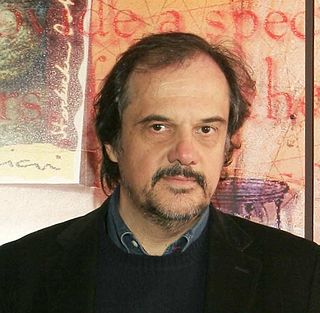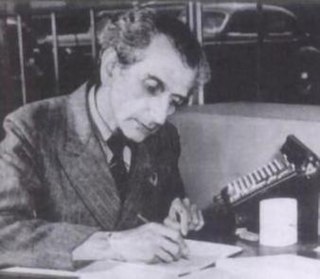A Quote by Edsger Dijkstra
Programming is one of the most difficult branches of applied mathematics; the poorer mathematicians had better remain pure mathematicians.
Related Quotes
We find sects and parties in most branches of science; and disputes which are carried on from age to age, without being brought to an issue. Sophistry has been more effectually excluded from mathematics and natural philosophy than from other sciences. In mathematics it had no place from the beginning; mathematicians having had the wisdom to define accurately the terms they use, and to lay down, as axioms, the first principles on which their reasoning is grounded. Accordingly, we find no parties among mathematicians, and hardly any disputes.
I am obliged to interpolate some remarks on a very difficult subject: proof and its importance in mathematics. All physicists, and a good many quite respectable mathematicians, are contemptuous about proof. I have heard Professor Eddington, for example, maintain that proof, as pure mathematicians understand it, is really quite uninteresting and unimportant, and that no one who is really certain that he has found something good should waste his time looking for proof.
It has been a fortunate fact in the modern history of physical science that the scientist constructing a new theoretical system has nearly always found that the mathematics. . . required. . . had already been worked out by pure mathematicians for their own amusement. . . . The moral for statesmen would seem to be that, for proper scientific "planning", pure mathematics should be endowed fifty years ahead of scientists.
As for mathematicians themselves: don't expect too much help. Most of them are too far removed in their ivory towers to take up such challenges. And anyway, they are not competent. After all, they are just mathematicians-what we need is paramathematicians, like you... It is you who can be the welding force, between mathematicians and stories, in order to achieve the synthesis.
Mathematicians have been hiding and writing messages in the genetic code for a long time, but it's clear they were mathematicians and not biologists because, if you write long messages with the code that the mathematicians developed, it would more than likely lead to new proteins being synthesized with unknown functions.
... there are those who believe that mathematics can sustain itself and grow without any further contact with anything outside itself, and those who believe that nature is still and always will be one of the main (if not the main) sources of mathematical inspiration. The first group is identified as "pure mathematicians" (though "purist" would be more adequate) while the second is, with equal inadequacy, referred to as "applied".
It is a melancholy experience for a professional mathematician to find himself writing about mathematics. The function of a mathematician is to do something, to prove new theorems, to add to mathematics, and not to talk about what he or other mathematicians have done. Statesmen despise publicists, painters despise art-critics, and physiologists, physicists, or mathematicians have usually similar feelings: there is no scorn more profound, or on the whole more justifiable, than that of the men who make for the men who explain. Exposition, criticism, appreciation, is work for second-rate minds.
Most of the arts, as painting, sculpture, and music, have emotional appeal to the general public. This is because these arts can be experienced by some one or more of our senses. Such is not true of the art of mathematics; this art can be appreciated only by mathematicians, and to become a mathematician requires a long period of intensive training. The community of mathematicians is similar to an imaginary community of musical composers whose only satisfaction is obtained by the interchange among themselves of the musical scores they compose.
Mathematicians can and do fill in gaps, correct errors, and supply more detail and more careful scholarship when they are called on or motivated to do so. Our system is quite good at producing reliable theorems that can be solidly backed up. It's just that the reliability does not primarily come from mathematicians formally checking formal arguments; it comes from mathematicians thinking carefully and critically about mathematical ideas.



































